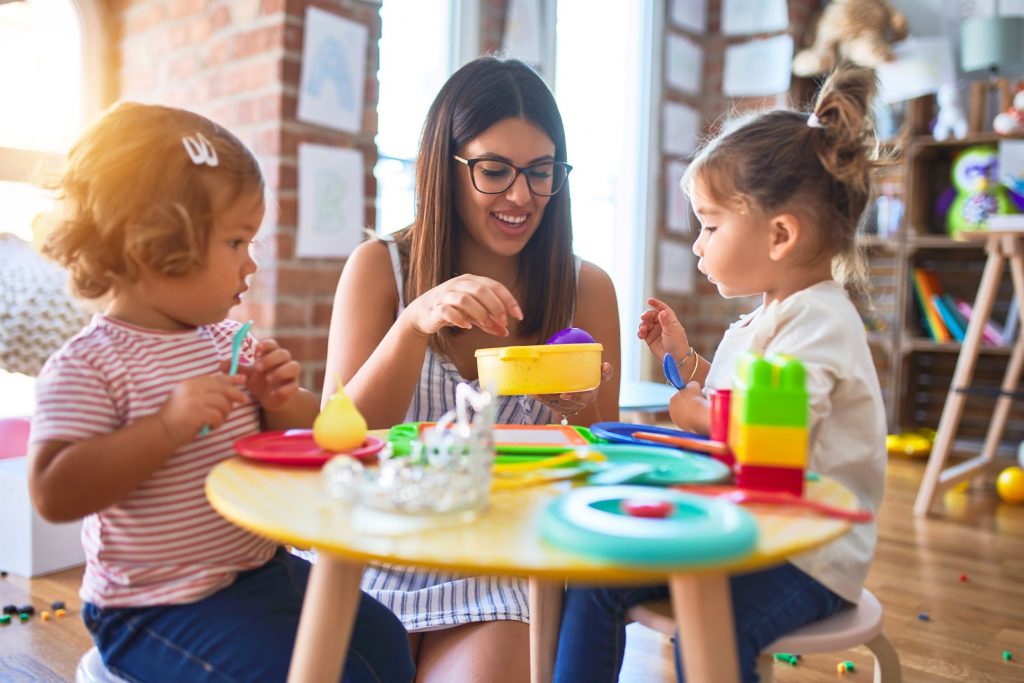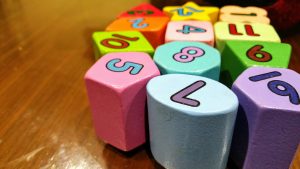By: Karissa Arce
When you think of Early Years class, the first thing that comes in your mind would be this:
Children learn how to read and write, naming colors, counting perfectly from 1 to 10 and singing the alphabet correctly. (To name a few)
If you visit my class, you might see them doing some writing, coloring, and cutting if we are doing table top activities DURING our learning center time. But on most days, we will be playing games and our class will be messy and sometimes loud. While this might not be the kind of classroom you have in mind for preschool, this is actually what you should expect for preschool.
Just to be clear, I teach basic concepts to children on a daily basis. What I don’t do is to just let them memorize it. I present my lessons in different ways to cater to the different kinds of learners in my class. I also try my best to connect what they learn from school to their daily activities in and outside the school to help them develop better understanding. I just don’t push them that hard to avoid them from getting frustrated. That will lead to little interest when learning new concepts.
“But Ysa, won’t they be late if you don’t drill them? When they move to primary school they will have a hard time.”
I’m going to let you in on a little secret, okay? Promise to tell everyone because this is super important. I am counting on you. Are you ready? Here it goes:
Social development is extremely important during the early stages of your child’s life. During the early years is when they learn how to manage their emotions, their ideas, how to communicate their feelings, how they start a conversation with other people, when they learn the importance of consent and boundaries, understanding what empathy and perspective taking is about, building trust, gaining confidence and a lot more. If these things are not taken into BIG consideration, the things that they thought are “normal” because it was not processed to them, they will bring it with them as they grow older and will create a more complicated adult life.
You have to remember that socializing does not only happen during play time. It’s something that all of us do on a daily basis. Asking for help is socializing, having an argument is socializing, sharing a funny story is socializing, the moment you interact with another person is considered socializing. I remember reading this article a couple of years back about a school in Portugal. They mentioned how they prioritize social development more than academic skills until their high school department because having a high EQ is more important than a high IQ. Your thoughts on that?
I teach concepts by incorporating them in games or group activity where children are given the opportunity to work with other children or another adult. I focus on giving children more time to practice what they know through execution – first hand experiences will help them remember it better. It’s like hitting more than 2 birds with one stone. I learned that when we are teaching a concept, it’s more effective if we are also going to incorporate other skills to support the main concept. Utilizing their five senses will yield better results. Of course I still let them do paper and pencil activities. Those are mainly just to review and to see if they can translate what they have learned in writing.
“But how do you handle conflicts? For sure they end up fighting!”
Yes they do. BUT I don’t handle it directly. Or at least at the beginning I was more involved. I teach them how to process disagreements, how they can communicate better, negotiate and then let them practice it when the situation calls for it. Eventually I just stay on the side and listen, ready to jump in if needed. Most of the time, their other peers will help them settle the situation. I kid you not, this makes me proud and a bit teary whenever we have moments like this inside the class. When all is over and back to normal, I make it a point to acknowledge everyone for doing a good job and process what happened just to keep everyone on track and to validate all the efforts that they did, especially the helpful efforts.
“Okay, but still, they will be late if they play more than learning how to read and write.”
First of all, play is the best way for children to learn things. It’s what they do best. Second, When a child is not yet ready, they will not absorb anything. I had students before who can’t recognize even the letters of their names no matter how often they practice writing it. They know what it looks like but to name each letter, it was not happening. And then one day, the magical snap happened and they were able to name all the letters and even started blending letter sounds to phonetically read some words. The take here is, every child has their own pace when it comes to progress. We can give them exposure to letters and numbers but we cannot force them to learn those things when they are not ready. Let’s not keep thinking that they will be late. Late for what? Yes there are developmental milestones per age, but those are NOT a requirement that at a certain age your child SHOULD be able to do otherwise they are not developing well and they are late. (Unless of course there are special cases, however we still cannot rush them especially if they are not given the opportunity to try). It’s just to give you an idea on what are the things they are capable of doing so you can start planning on how they will achieve those milestones.
While I do understand the concern of the child not being able to catch up when they move to primary school especially when the school has given you the “list” of skills they have to have when they move, here’s something that you should remember: it’s not for your child BUT for the school’s sake. Because they don’t want to reteach these things again. Not focusing on individual progress. Yup, I said what I said.
Teach your child to be kind. Teach your child to be helpful. Teach your child to see the beauty in simple things. Teach your child to trust themselves that even if they are having a hard time, they will be able to get through it. Teach your child to take accountability with their actions and words. Teach your child to say “thank you for” and “I am sorry for doing this.” Teach your child that it’s okay to say no when they are not comfortable. Don’t worry too much about their academics. They have ample time to learn those things once they are ready and they feel confident. Work on your child’s character. At the end of the day, we remember people who showed compassion. Not the ones with the perfect score.




